-
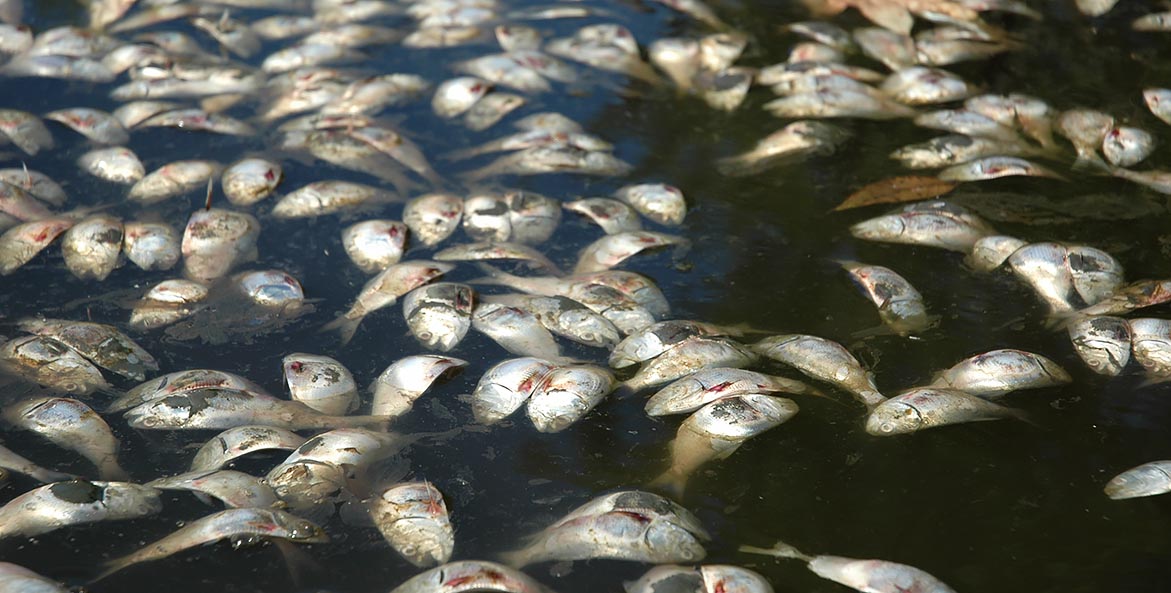
Chesapeake ‘Dead Zone’ Average Size in 2024
November 20, 2024
The Chesapeake Bay’s dead zone, a low-oxygen area that can smother underwater life, was about average in size in 2024, according to recently released data.
-
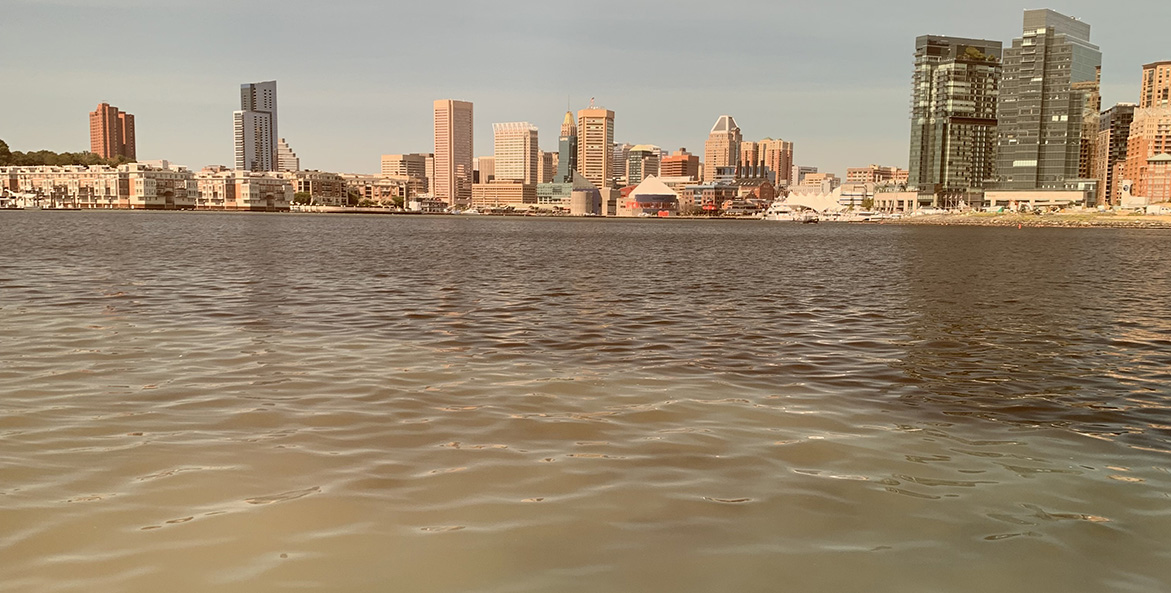
Massive Baltimore Harbor Fish Kill Highlights Need for Further Pollution Reduction
September 5, 2024
Seasonal temperature changes combined with polluted water, algal blooms, and dead zones, resulted in roughly 24,000 dead fish in the Baltimore Harbor on Wednesday, September 4.
-
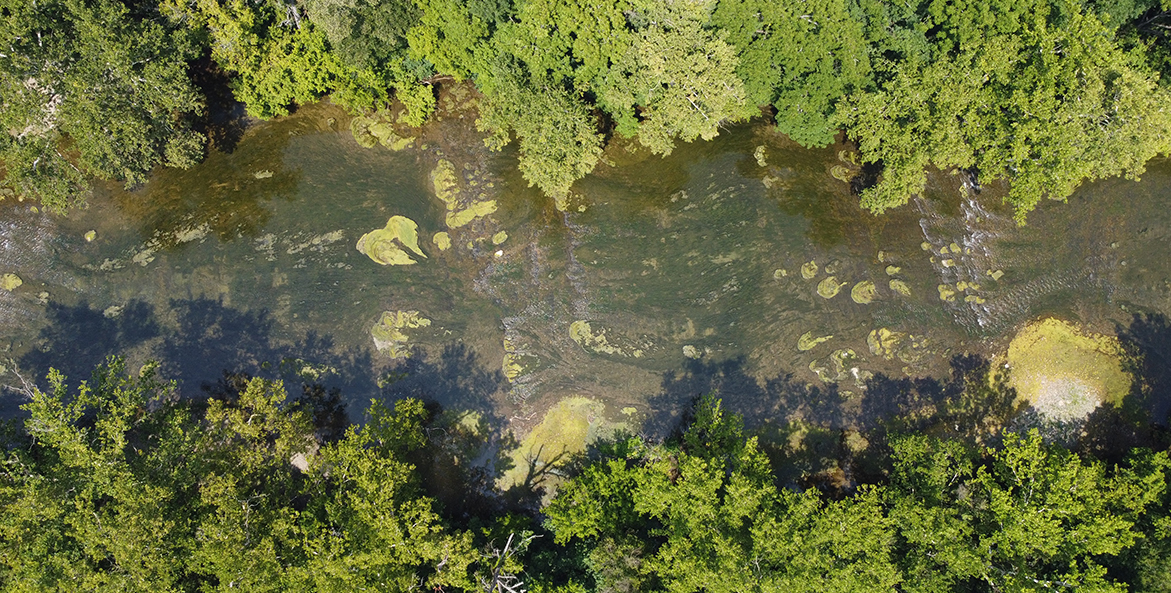
Algal Mats Impair North Fork Shenandoah River
August 14, 2024
The North Fork Shenandoah River is once again experiencing excessive algal growth, restricting the community's full use of the river for fishing and swimming.
-
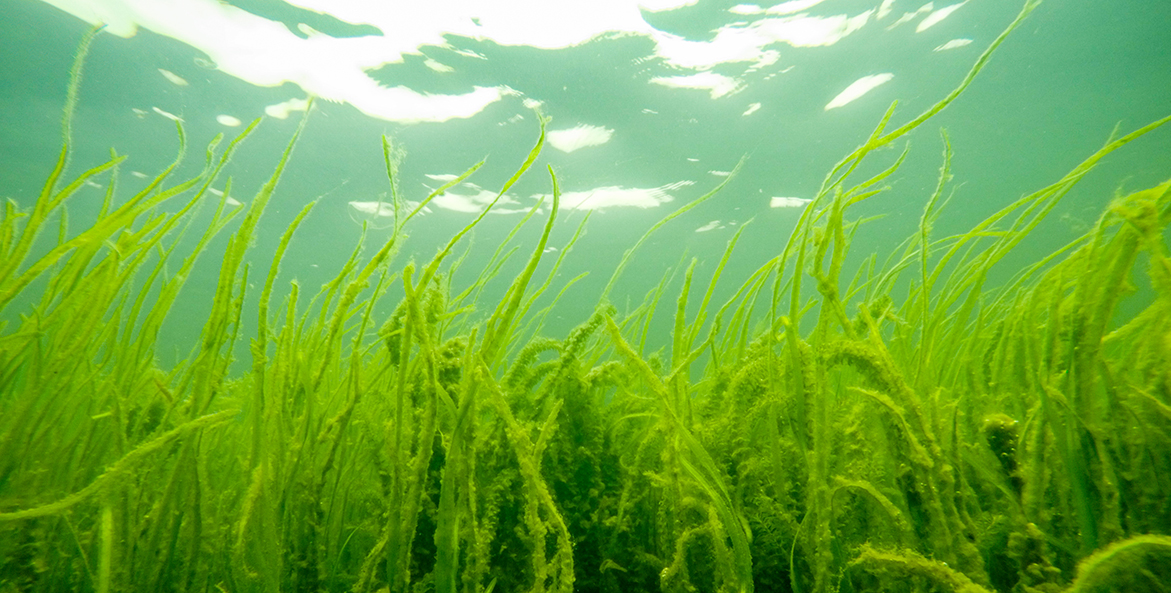
CBF Statement on 2023 Chesapeake Bay Dead Zone
November 28, 2023
The dead zone in the Chesapeake Bay this year is the smallest since monitoring began in 1985, according to data released today by the Maryland Department of Natural Resources, Old Dominion University, and Virginia Institute of Marine Science.
-
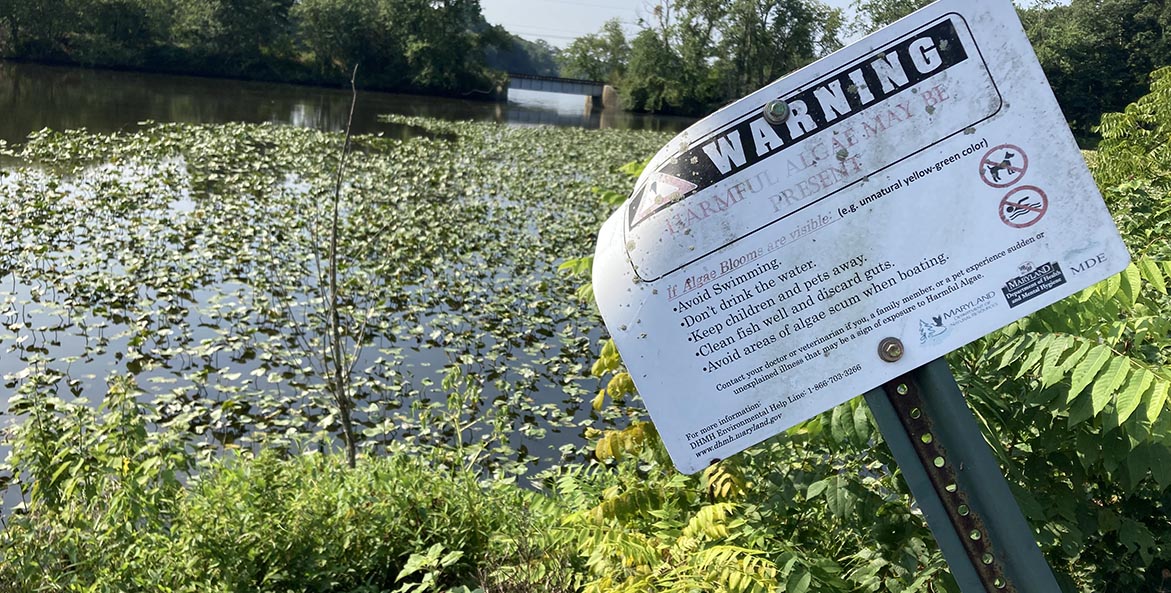
Watershed Out of Balance: How Industrial Agriculture Tips the Scales
October 20, 2023
With intensifying livestock production in places like the Eastern Shore of Maryland, many are finding that conservation practices can’t keep up with pollution.
-
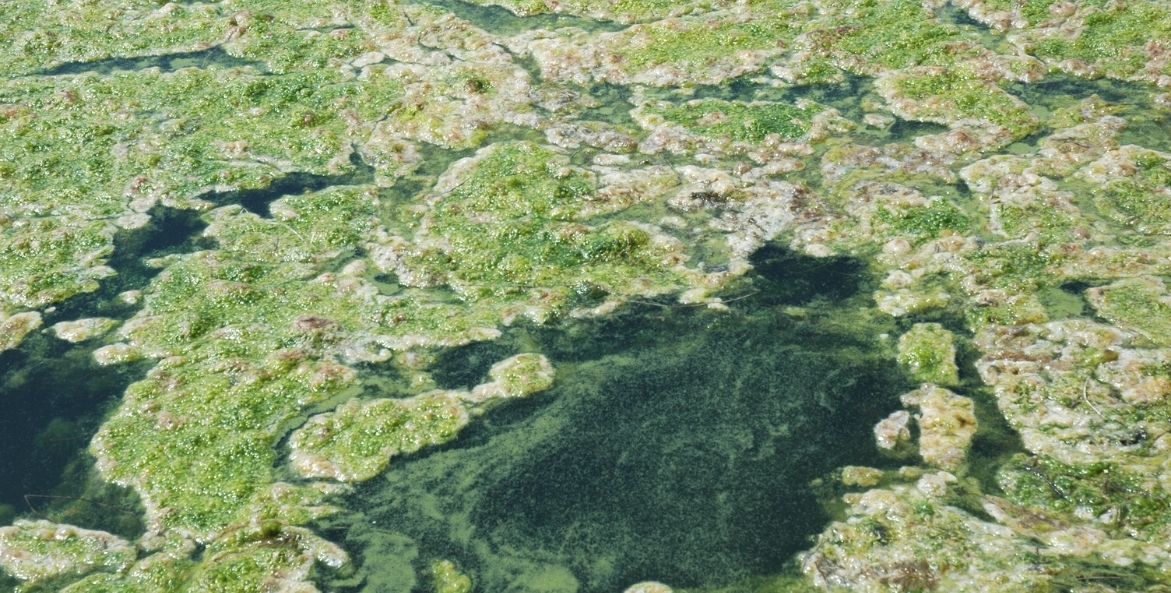
Maryland Environmental Organizations Seek Judicial Review of New Valley Proteins Wastewater Permit
February 21, 2023
On Friday, Chesapeake Bay Foundation (CBF), Dorchester Citizens for Planned Growth (DCPG), Friends of the Nanticoke River, ShoreRivers, and Wicomico Environmental Trust filed a legal challenge against Maryland Department of the Environment’s (MDE) newly issued wastewater discharge permit for Valley Proteins’ animal waste rendering plant in Linkwood.
-
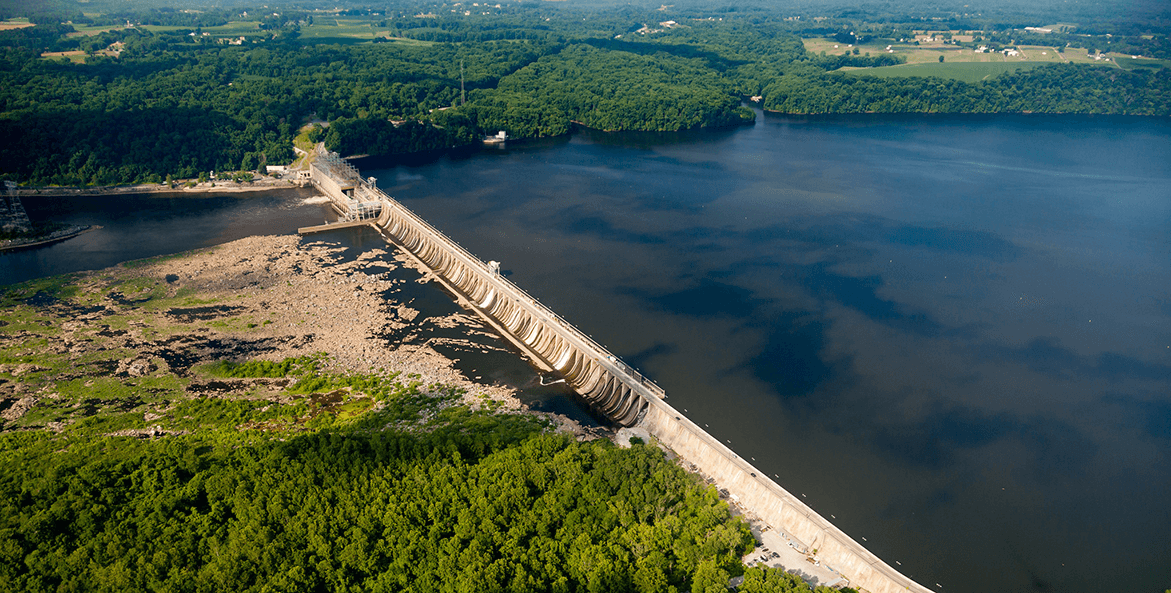
Court of Appeals Vacates Maryland’s Conowingo Dam License, Offering New Chance for Chesapeake Bay Protections
December 20, 2022
Today, the U.S. Court of Appeals in Washington, D.C., vacated the license issued by the Federal Energy Regulatory Commission (FERC) for Conowingo Dam.
-
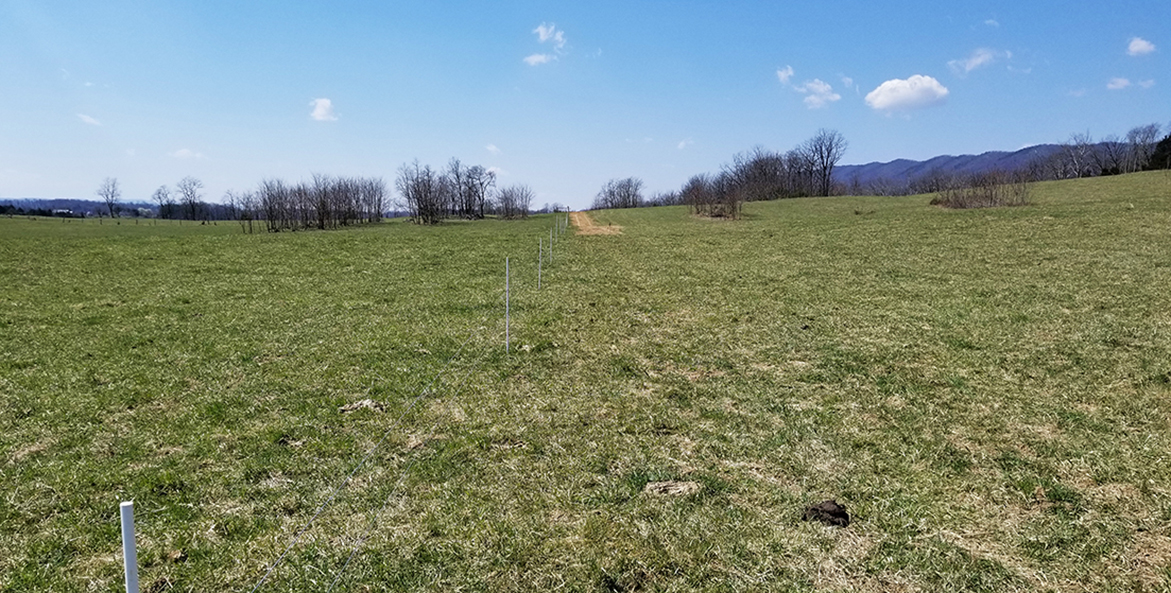
CBF Calls on MDE to Deny Hurlock Spray Irrigation Permit
December 1, 2022
CBF scientists are concerned a groundwater discharge permit renewal that would enable the Town of Hurlock’s wastewater treatment plant to continue spraying 725,000 gallons of treated wastewater per day onto farm fields puts water quality and wildlife at risk.
-

CBF Statement on 2022 Chesapeake Bay Dead Zone Survey Results
November 17, 2022
The Chesapeake Bay Foundation (CBF) is encouraged by new survey results released Wednesday by the Maryland Department of Natural Resources and Old Dominon University that found the area of low dissolved oxygen in the Bay was better than average for 2022.
-
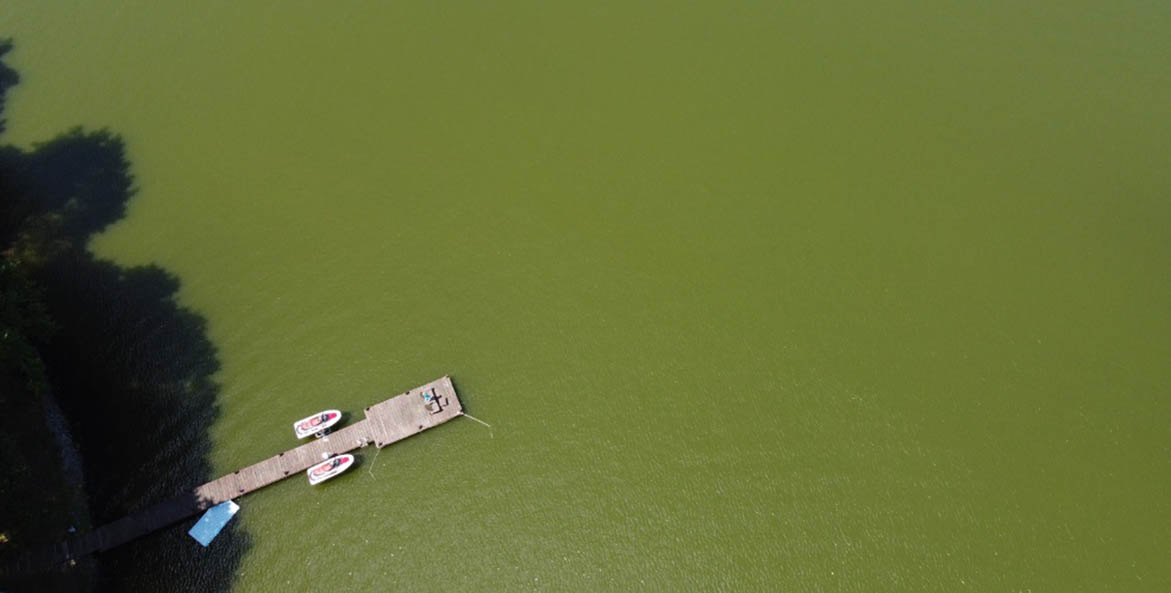
Virginia Declares More Waterways Damaged by Harmful Algal Blooms
August 11, 2022
Harmful algal blooms that threaten the health of people and pets who spend time on the water led Virginia to add Lake Anna and six other bodies of water to its list of impaired waterways in a recent draft report.
-
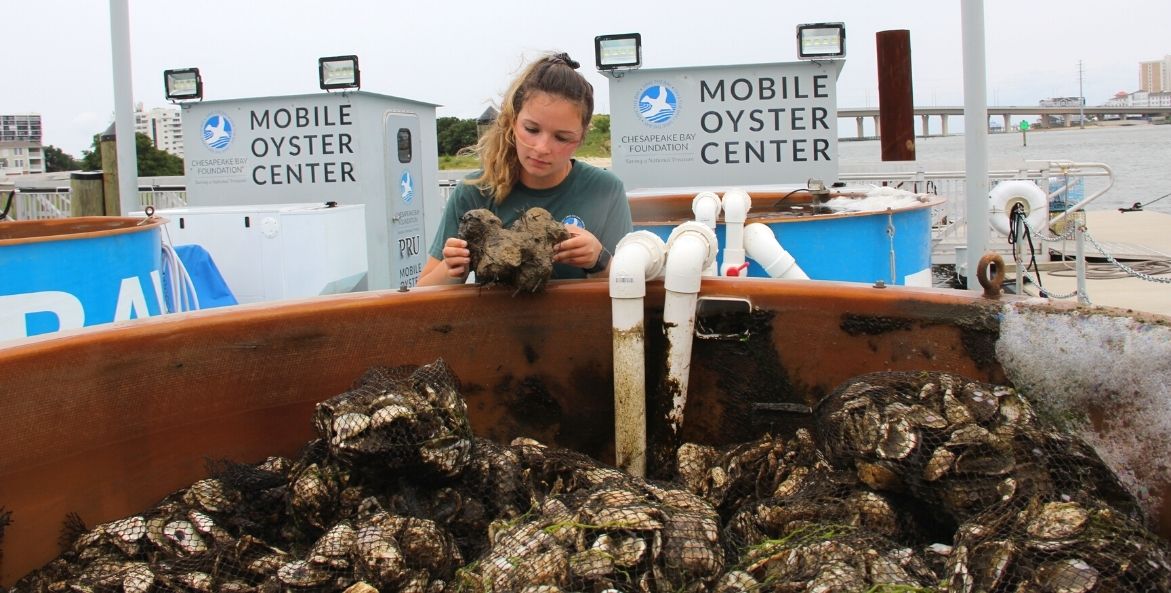
Virginia Efforts Plant 3.5 Million Oysters This Season from the Northern Neck to the Eastern Shore
September 7, 2021
CBF's Virginia Oyster Team is completing its 2021 oyster restoration season today after raising about 3.5 million new oysters on innovative oyster barges docked at the Brock Environmental Center in Virginia Beach. The barges produced a CBF Virginia record high spat set this year.
-
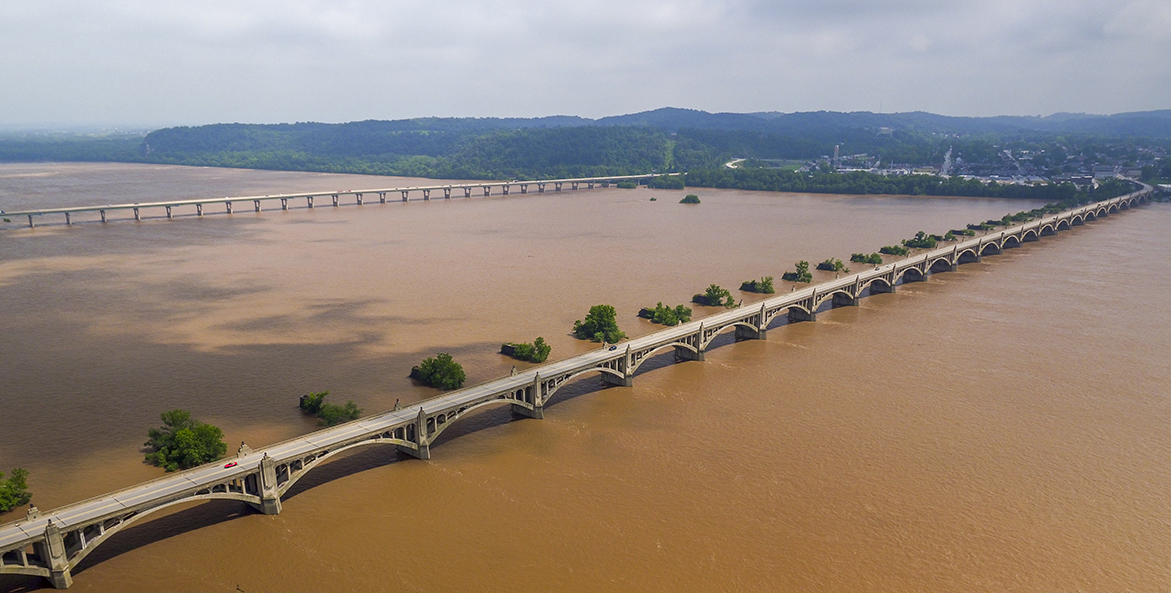
What Does Hurricane Ida Mean for the Chesapeake Bay?
September 2, 2021
CBF's Director of Science and Agricultural Policy Beth McGee tells us what we need to know.
-
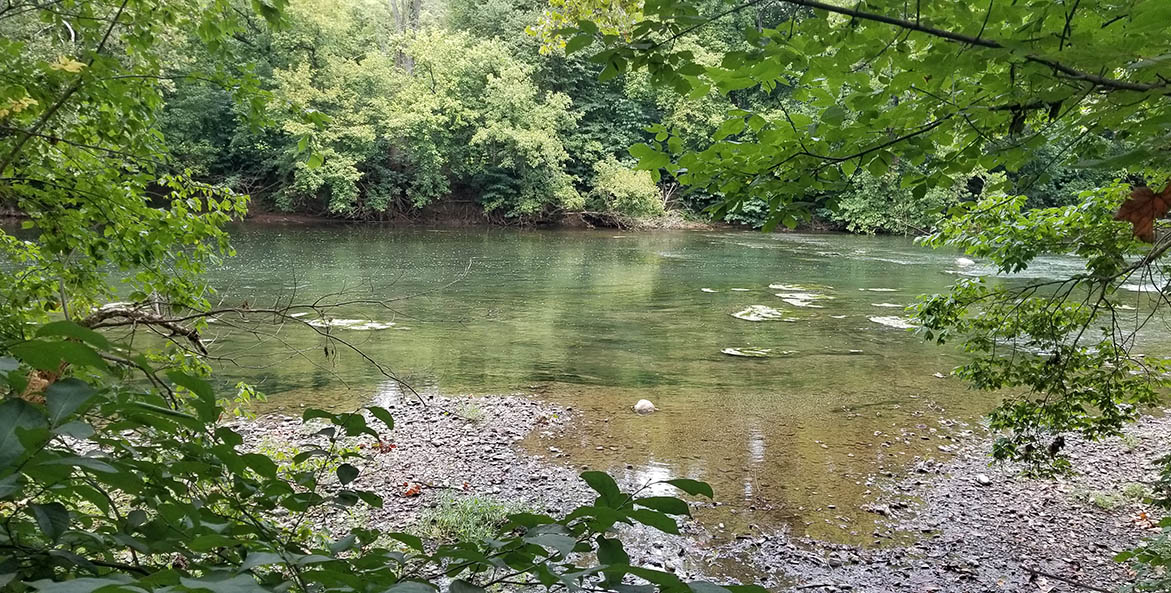
Harmful Algal Blooms: Red Tides, Cyanobacteria, and Filamentous Clumps are Clogging Chesapeake Waters
August 31, 2021
What are they, and what can we do about them?
-
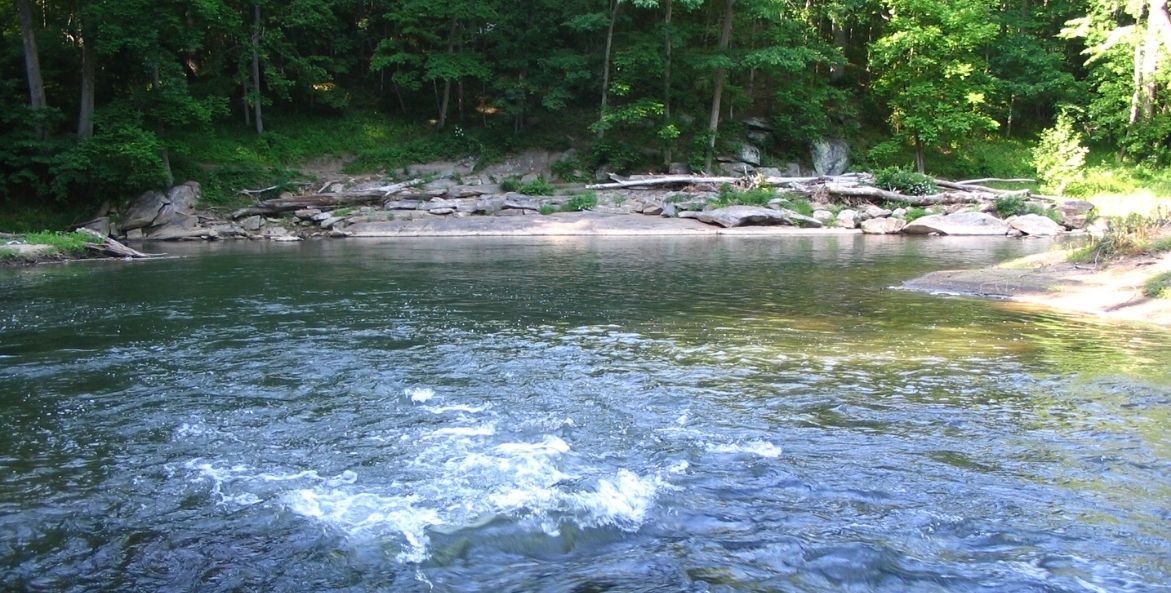
CBF Urges Baltimore Department of Public Works to Fix Major Issues at Maryland’s Two Largest Wastewater Treatment Plants
August 31, 2021
CBF is urging Baltimore’s Department of Public Works to take swift action to address the litany of pollution problems revealed at the Back River and Patapsco wastewater treatment plants. The issues have the potential to significantly harm the success of Maryland’s ongoing Bay cleanup work, which depends on significant pollutant reductions from wastewater treatment plants.
-
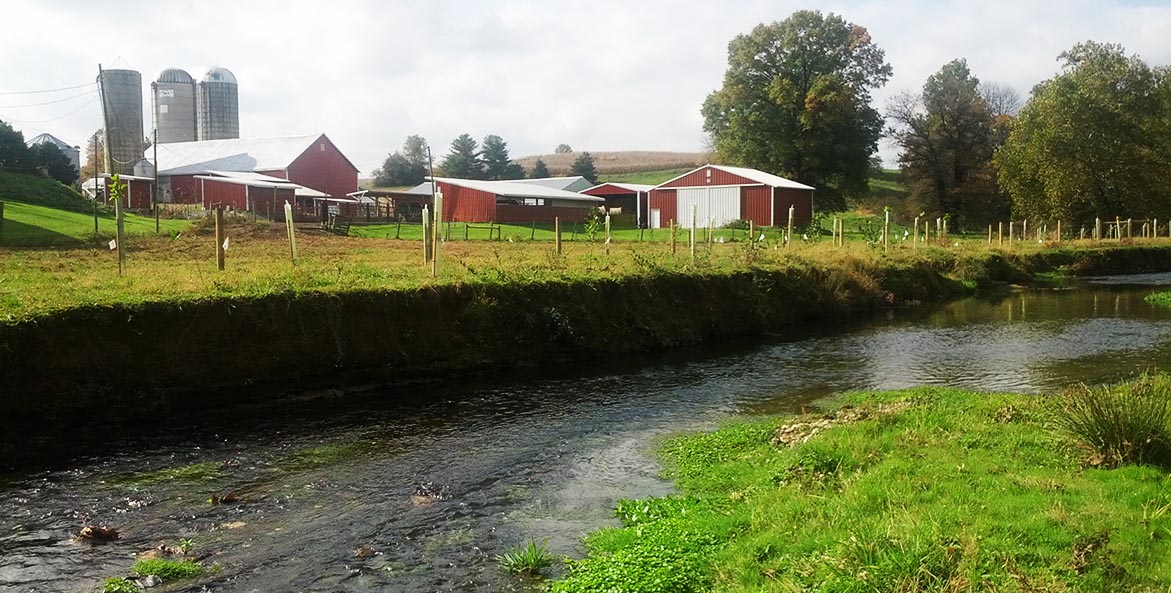
Congress Must Help Save the Chesapeake Bay
August 27, 2021
The ongoing bay cleanup provides Congress with an opportunity to demonstrate that we can reduce bay pollutants, such as nitrogen and phosphorus.
-
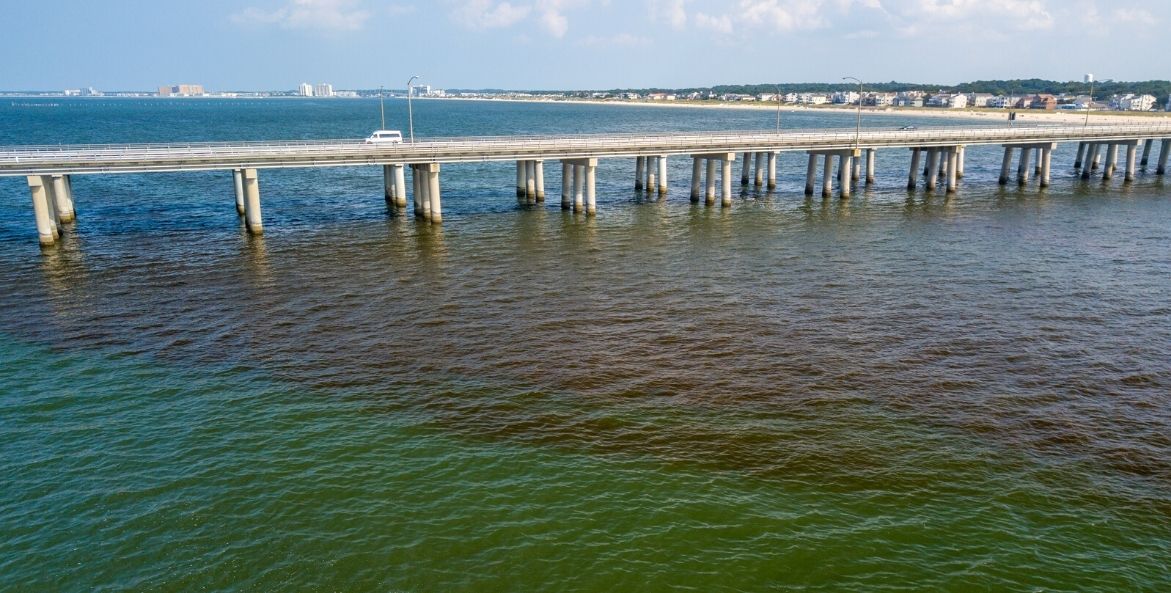
Hampton Roads Faces Harmful Algal Blooms This Week
August 27, 2021
A proliferation of harmful algal blooms this week across Hampton Roads is clear in striking aerial photos and videos captured by CBF and American Multimedia Solutions near the Chesapeake Bay Bridge Tunnel on Aug. 26. The algae colored the water reddish-brown in many places, including Ocean View in Norfolk, Chic’s Beach in Virginia Beach, and the Lafayette and York rivers.
-

Shenandoah’s North Fork under Health Advisory Due to Harmful Algal Bloom
August 13, 2021
The Virginia Department of Health this week urged people to avoid the water on more than 50 miles of the North Fork of the Shenandoah River due to dangerous toxic algal mats recently reported in Shenandoah and Warren counties. These harmful algal blooms can contain toxins that cause illnesses and rashes in people, pets, and livestock.
-
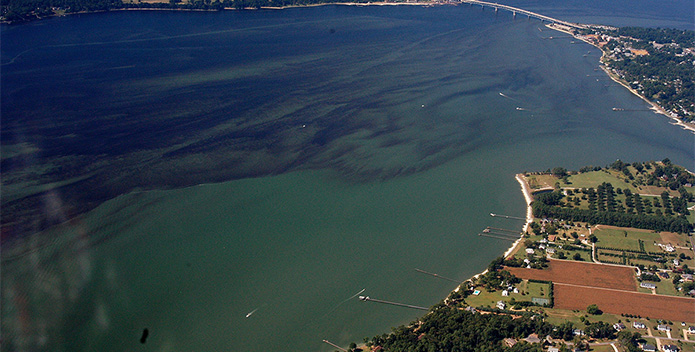
CBF Statement on 2020 Chesapeake Bay Dead Zone
October 28, 2020
This year’s small dead zone is another positive sign that watershed-wide Chesapeake Bay cleanup efforts are working.
-
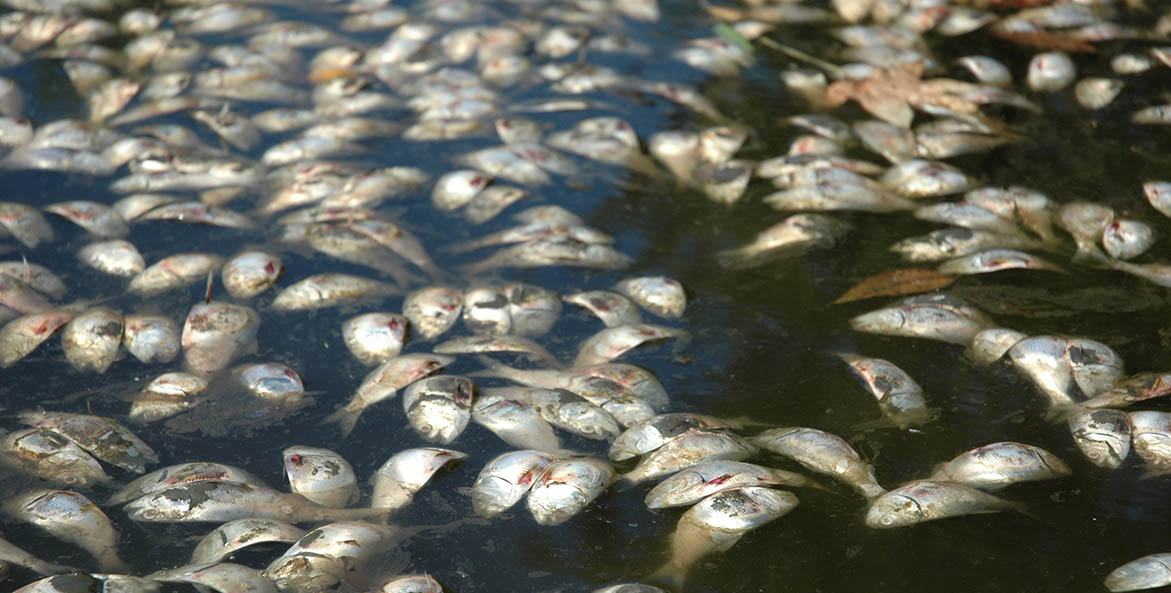
Bay Dead Zone: What’s It Like This Summer?
August 7, 2020
Each year during the summer, an area of water with low oxygen levels—known as a “dead zone”—forms in the Bay. But what about this year’s dead zone and what it means for the Bay?
-
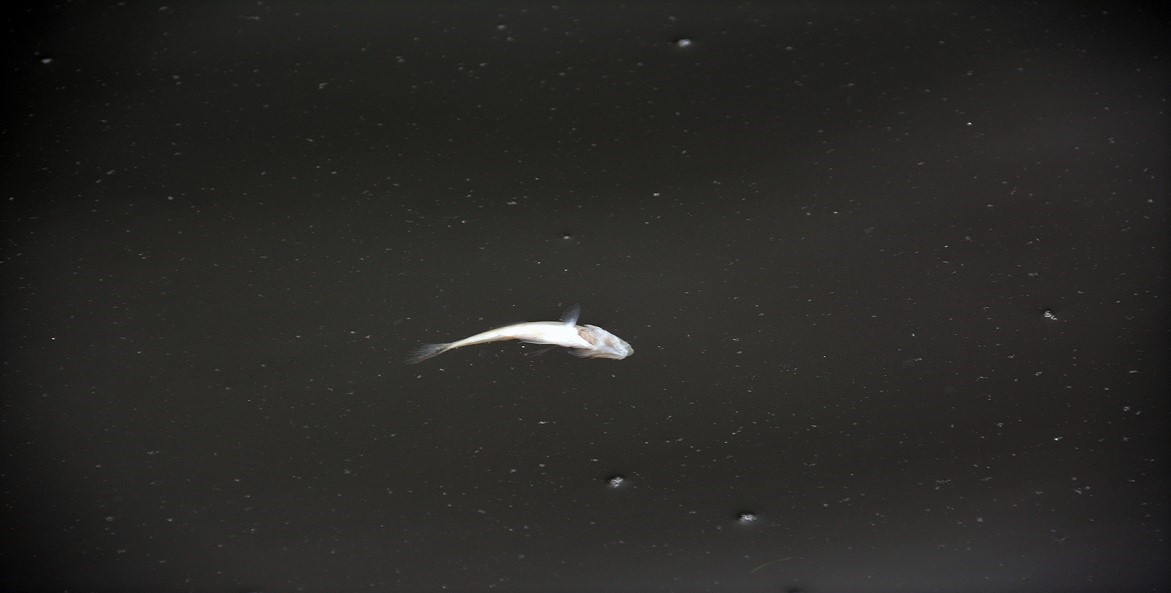
What the Mahogany Tide Means for the Bay
June 4, 2020
We talk with CBF’s Maryland Senior Scientist Doug Myers to explain what's behind the rust-colored water in the mid-Bay's tidal rivers and what it means.
-
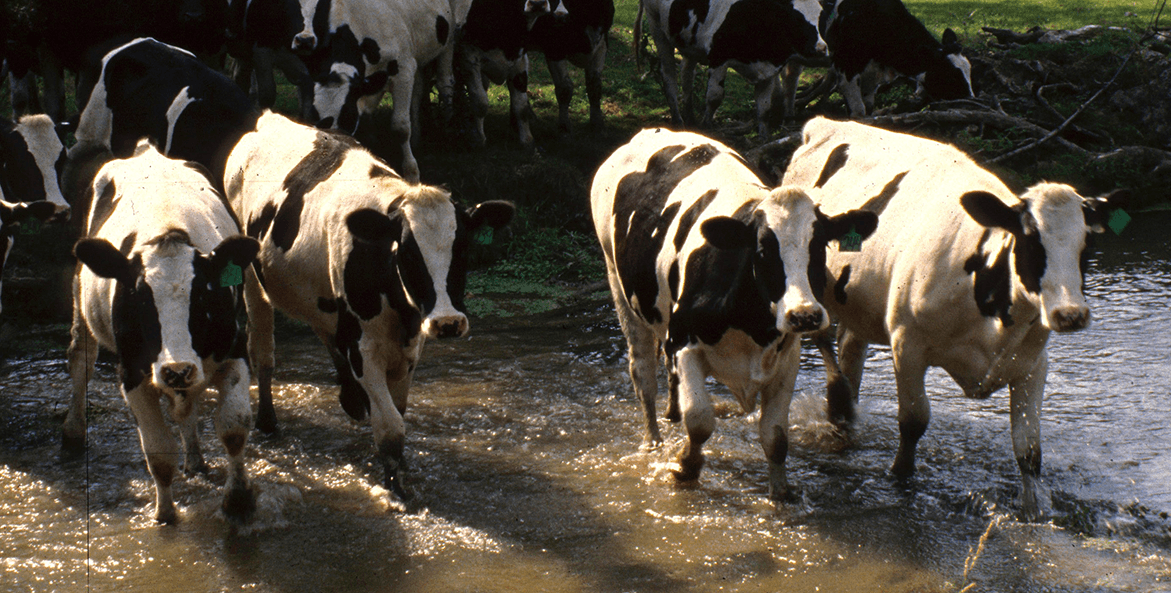
Virginia Bills Would Set 2026 Deadline for Farm Conservation Practices
January 24, 2020
In a major step forward, legislation being considered for the first time in Virginia's General Assembly would set a deadline for farmers to install key conservation practices that lead to healthier waterways and benefit farmers.
-
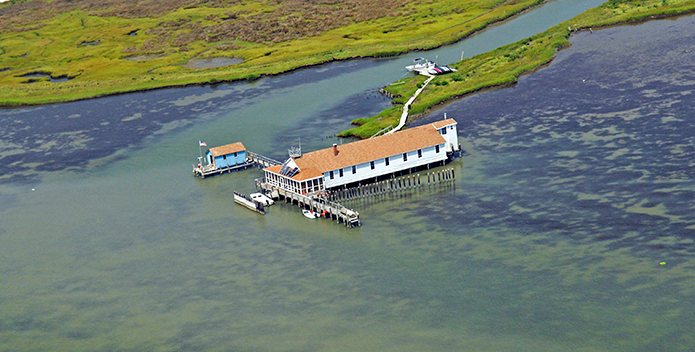
This Month in the Watershed: A Climate for Change
October 30, 2019
Climate change might be a global problem, but we are feeling the impacts here at home.
-
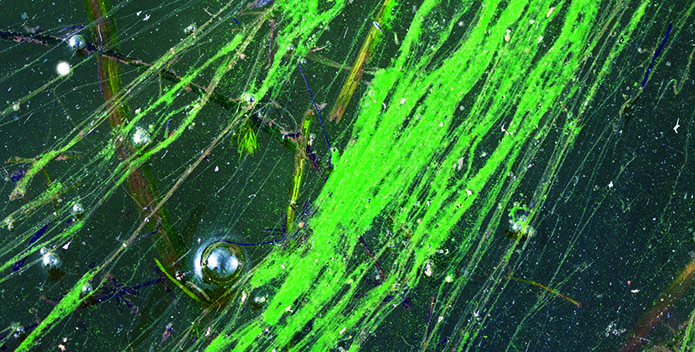
Could It Happen Here?
August 16, 2019
Last week, three dogs—Abby, Izzy and Harpo—had a play date in and around a seemingly harmless pond in Wilmington, North Carolina. A few hours later all three were dead. The culprit? A poisonous blue-green algae.
-
Show Me the Science: Virginia’s Refreshing Take on a Water Quality Quandary
July 18, 2019
Working together, researchers and policymakers created a win for the James River—and everyone else.
-
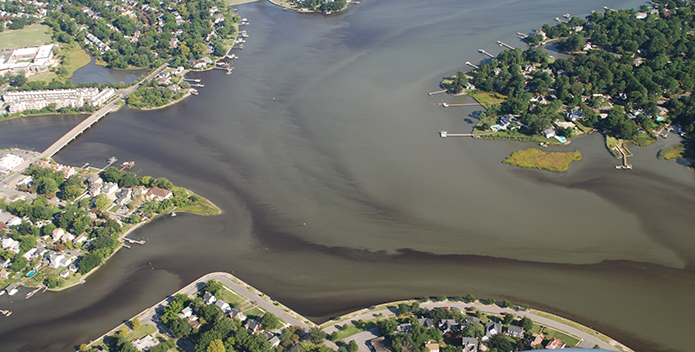
Show Me the Science: Virginia’s Refreshing Take on a Water Quality Quandary
July 18, 2019
Working together, researchers and policymakers created a win for the James River—and everyone else.
| Items 1 - 25 of 41 | 1 | 2 | Next |
